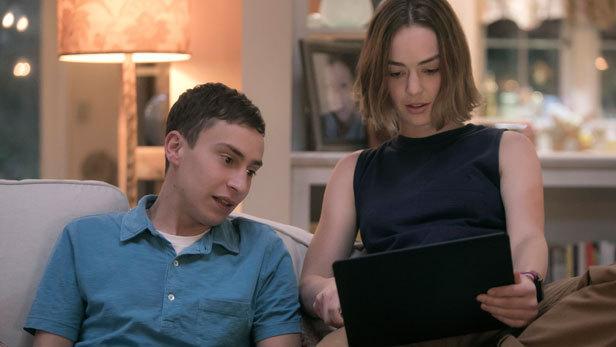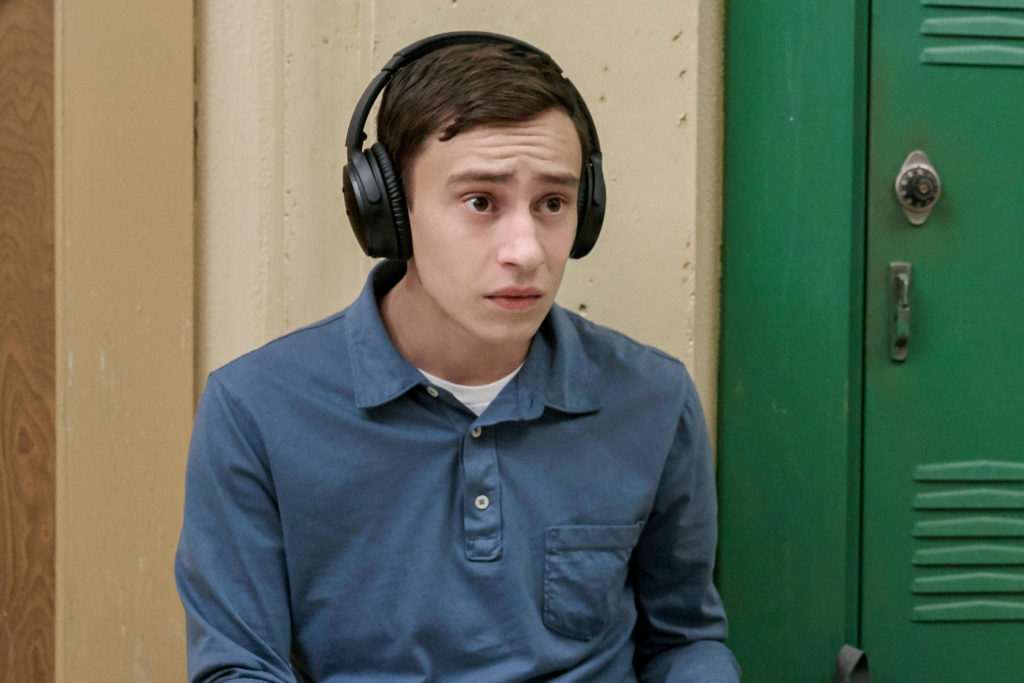
In a society where the term autism is still a foreign and new word amongst many, Netflix’s hit show: Atypical sheds just a hint of light on the daily struggles a person with autism experiences and, what their family dynamic may feel like.
Movies and shows, are slowly including characters on the spectrum of autism, now than ever before. So it doesn’t come as a shock that Netflix took it a step further by creating its’ central character (Sam), to be on the higher end of the spectrum. And as a lesson to the world, the show so lightheartedly helps us better understand what it is like for those with autism.
Sam’s character who comes off as comical to the viewer, depicts a teenage boy who lacks social cues, speaks in a slight monotone voice, and takes everything very literally. Sam, just like any other teenage boy, has desires of having a girlfriend. Teenage relationships are awkward enough as it is, so when Sam begins dating a classmate (Paige), who simply accepts him for who he is, it most definitely is the core subject of the entire season. With his social and communication impairments in place, scenes show Sam making literal pros and cons lists and slapping a girl upon his first encounter with nudity.

Sam’s character that is played by Keir Gilchrist is not the only one to be noticed on the show — his overly protective younger sister Cassie, portrayed by Brigette Lundy-Paine, is phenomenal. It is incredibly refreshing to depict a young teen girl who naturally exudes beauty. Between her little to no makeup and contagious confidence, she is the perfect reminder of what young girls should be looking up to in this day and age. With many Kylie Jenner wannabees out there and 16-year-old girls pounding makeup all over Instagram, Cassie reminds us that being studious, and focused on her beloved sport of running, can be just as badass.
The show touches on autism in the higher end of the spectrum, the ups and downs of being the sibling of someone affected with it, and the family obstacles that one lives through day in and day out. One must applaud the show for shedding light on different attributes that have historically been forgotten about.
Autism now affects every 1 in 68 children worldwide, leaving 40% to be non-verbal. Most of us know or will soon get to know somebody with these special souls. So, it is time to respect, understand and to find ways to include them into our society. We applaud shows like Atypical for bringing awareness and inclusion to such an important aspect of everyone’s lives.

Although the show displays a tiny fraction of the spectrum of autism, overdramatizes the dating aspects, and once again depicts only the higher end of the spectrum, for the Arab world everyone should watch this show to simply understand the importance of acceptance and inclusion.


